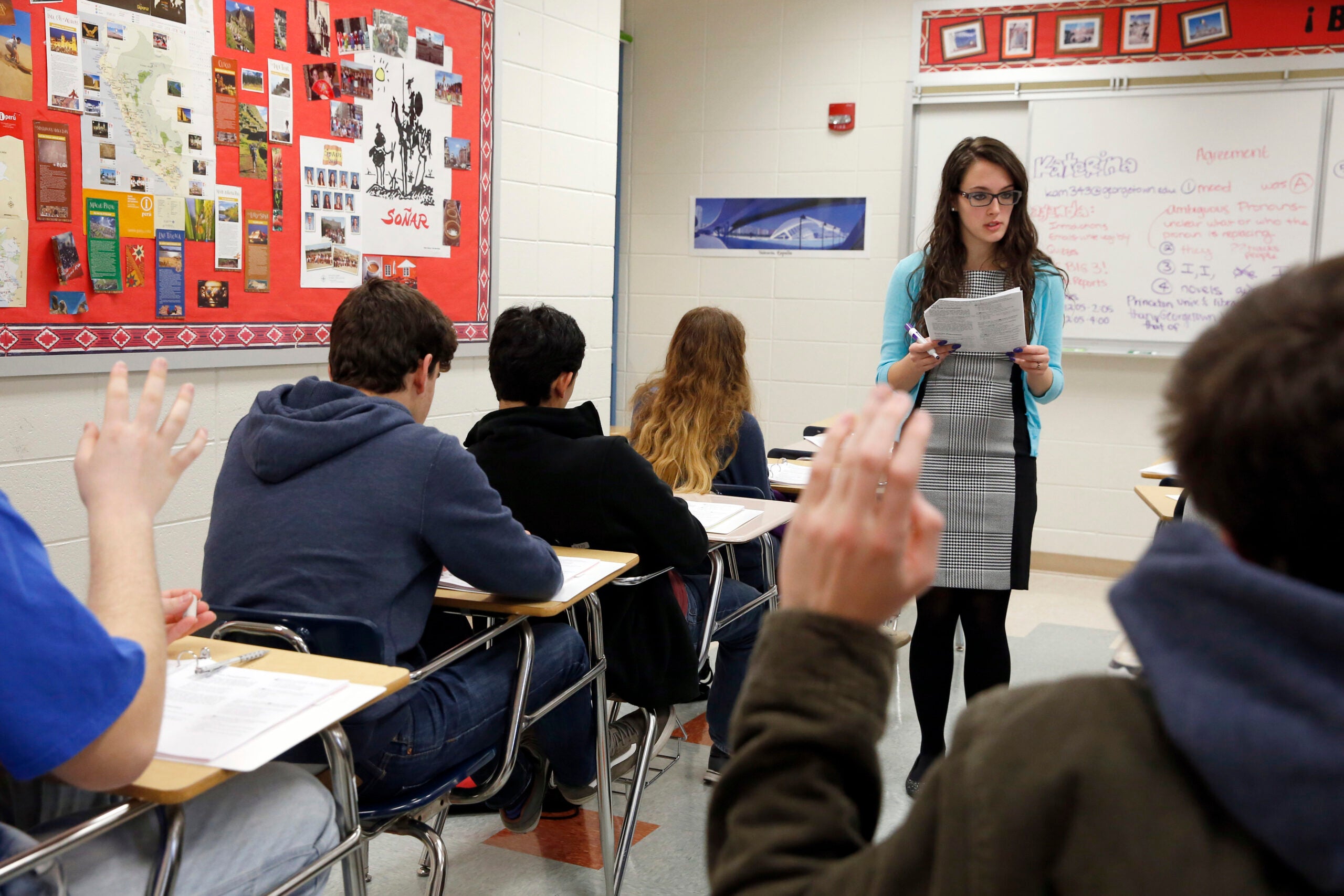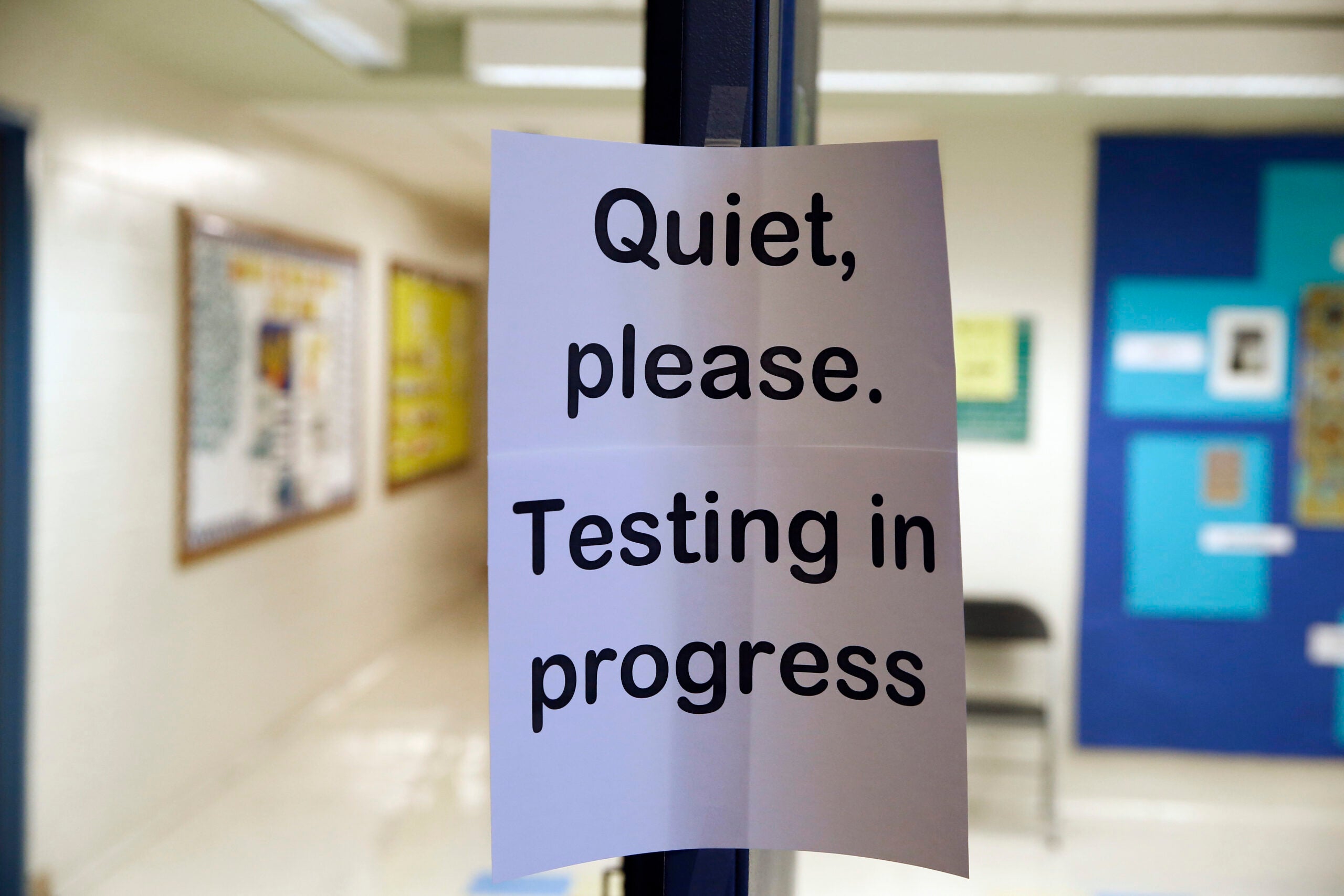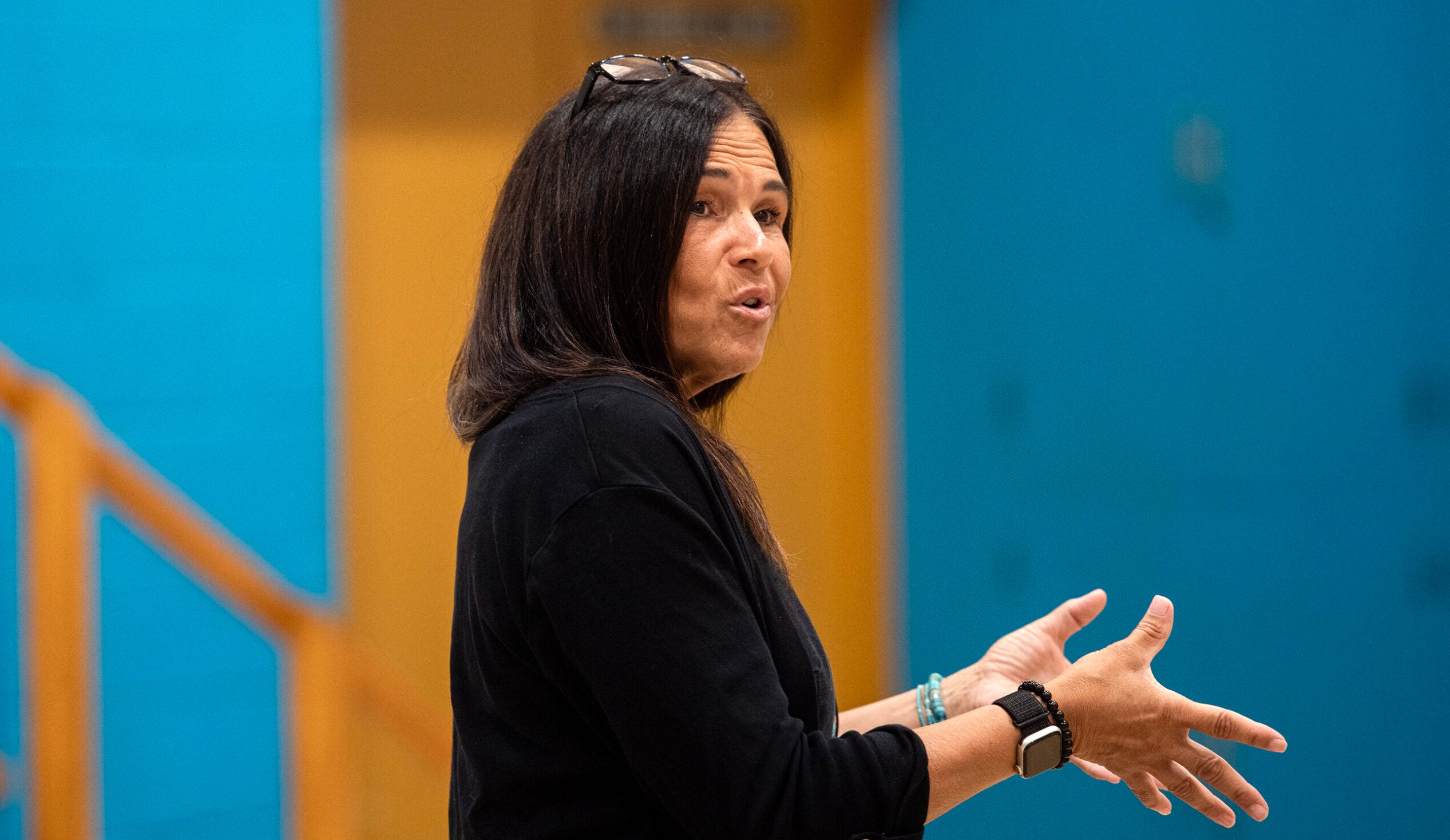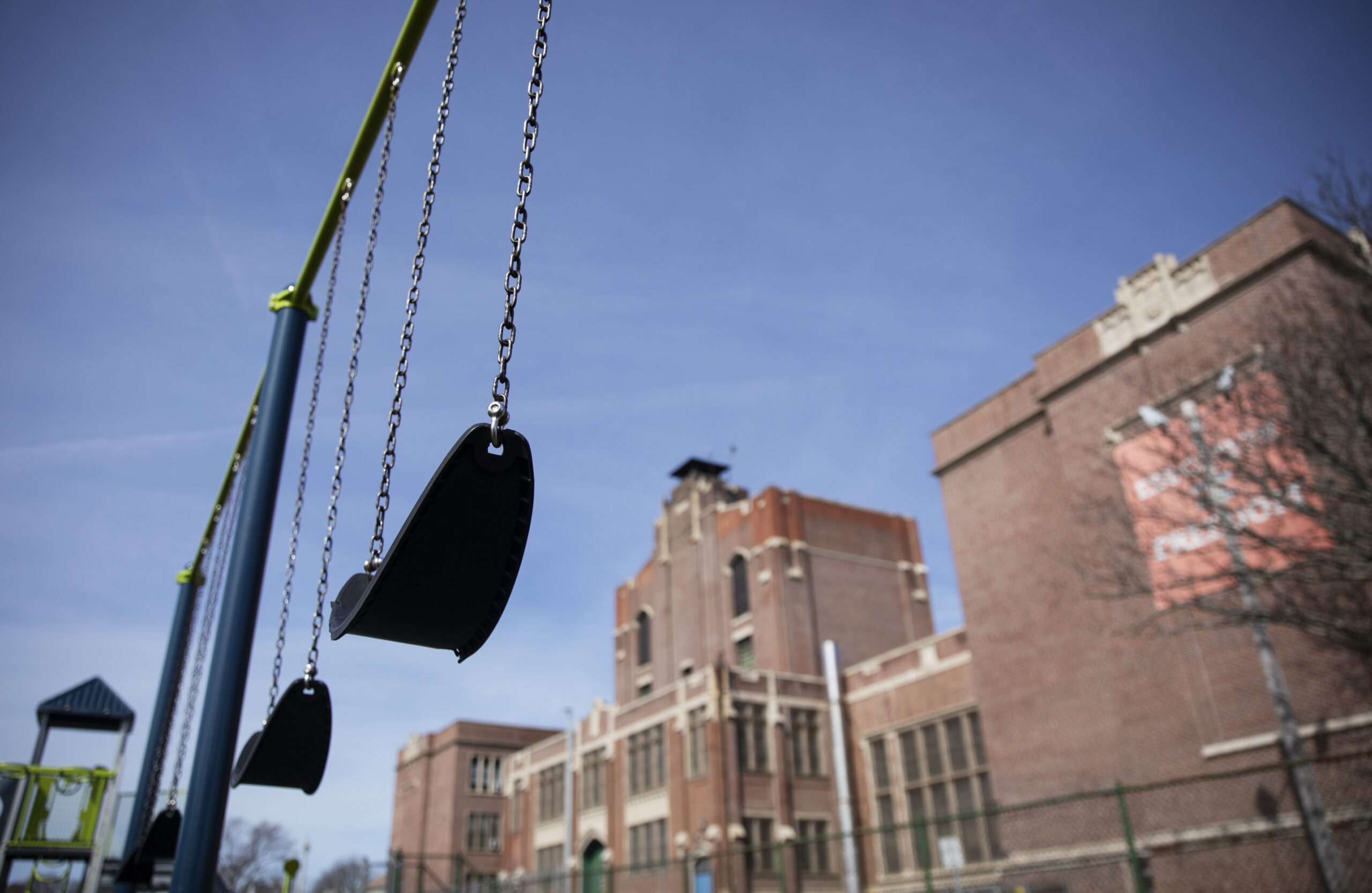Wisconsin students who miss 30 or more days of school could be held back a grade, under a new proposal.
If the legislation is approved, beginning in the 2025-26 school year, public school students and students at private schools that receive state money who miss a month or more of class would not advance to the next grade.
Currently, state law requires school boards to have policies stating what conditions a student must meet to be promoted from third to fourth grade, fourth to fifth grade and eight to ninth grade.
News with a little more humanity
WPR’s “Wisconsin Today” newsletter keeps you connected to the state you love without feeling overwhelmed. No paywall. No agenda. No corporate filter.
The bill, and five other truancy-related proposals, are the result of Assembly Speaker Robin Vos’s Task Force on Truancy. If passed by the Legislature, the legislation would need approval from Gov. Tony Evers.
The state’s attendance rate reached a new low of 91 percent in the 2021-22 school year and nearly a quarter of students missed at least a month of school, according to data from the state Department of Public Instruction.
New truancy data won’t be released until March 2024.
Representatives Amy Binsfeld, R-Sheboygan, and Dora Drake, D-Milwaukee, who chaired the truancy task force, did not respond to multiple requests for comment.
Research shows that missing many days of school impedes a student’s chances of passing a particular grade or earning a high school diploma.
Wisconsin’s problem with chronic absenteeism is not unique. Since the pandemic, students all over the country have struggled to make it to school, and educators are trying to figure out what to do about it.
DPI spokesperson Abigail Swetz said holding students back for absenteeism has been shown to be ineffective academically, would likely impact students of color disproportionately, and may even have the perverse effect of increasing the dropout rate.
“There are legitimate concerns about absenteeism in recent years since COVID-19, and rather than a punitive approach, we should make the necessary investments to increase supports for students and strategies to foster belonging and prevent absenteeism, as well as provide opportunities to make up work and missed instruction,” Swetz said.
Companion bills would change definition of truancy, how parents are informed
Other truancy bills being introduced include changing how parents will be notified their child is not in school and how districts define truancy.
Wisconsin’s 421 school districts each define “habitual truancy” differently.
A proposal would define “habitual truancy” to mean a pupil who is absent without an acceptable excuse for at least one-third of a day for at least five school days during a semester.
Another bill would prohibit DPI from using habitual truancy in determining a school’s performance score on a school district report card.
Being habitually truant is a violation of state law. Penalties for a first offense could be a fine of up to $500 or imprisonment of no more than 30 days. For a second offense, the fine could be up to $1,000 or 90 days of imprisonment.
But getting to that point is rare and would take years.
Before proceedings can be brought against a parent, there are many steps, including meetings with a parent or guardian, educational counseling, evaluation of learning problems and evaluation of social problems.
Impoverished districts likely to face more consequences
Students attending Milwaukee Public Schools, Racine Unified School District, Lac du Flambeau Public Schools and the Beloit School District would be affected the most, according to state data.
All of those districts had chronic absentee rates at more than 50 percent in the 2021-22 school year.
Data from Milwaukee Public Schools shows about 10 percent of the district’s 69,000 students missed at least 25 days of school so far this year.
But these four school districts are also some of the most impoverished in the state.
Several factors go into absenteeism, including housing and food insecurity, mental and emotional health and transportation issues.
DPI previously said it used federal pandemic relief funds to launch a program called ENGAGE Wisconsin, which works with school districts free of charge. The coaching focuses on academic, social and mental health issues that may be interfering with students’ ability to consistently attend or succeed in school.
As of November, 27 Wisconsin school districts, including MPS, were taking part in the program.
Wisconsin Public Radio, © Copyright 2025, Board of Regents of the University of Wisconsin System and Wisconsin Educational Communications Board.







